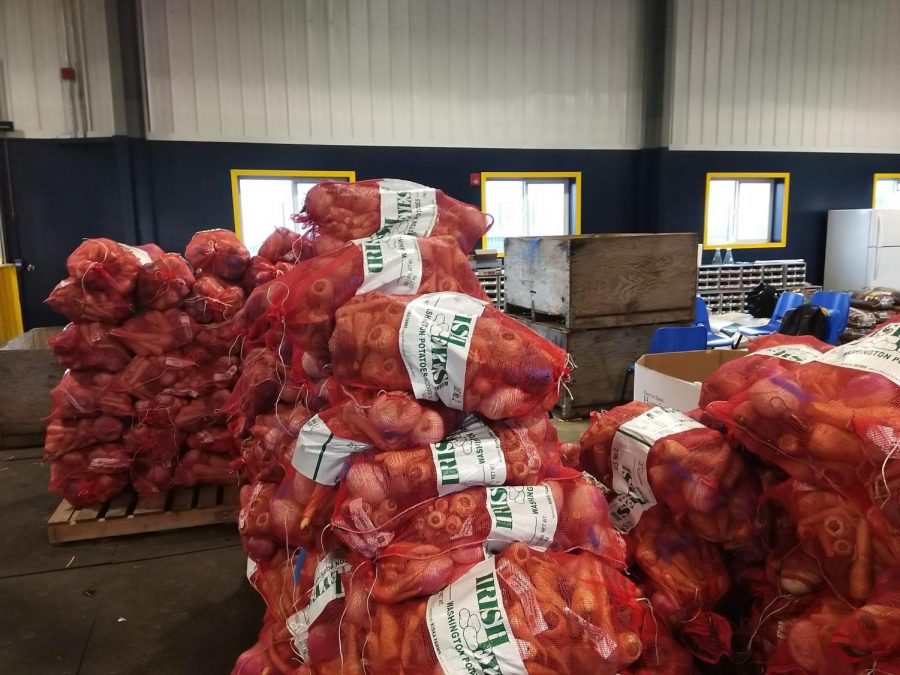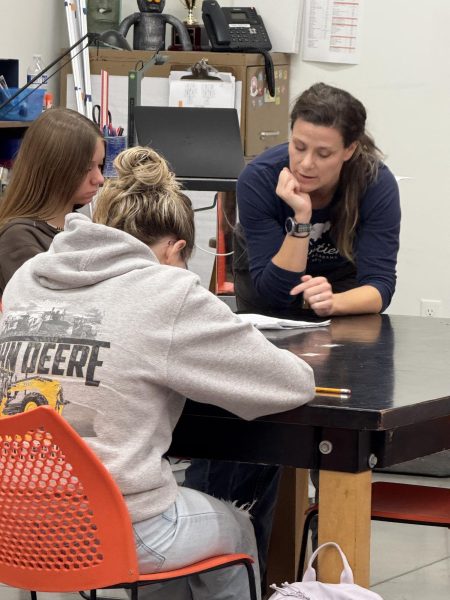Food For All!
Every year at YC, the “Food or all” food drive is a big part of the push towards winter break. This is a great chance for those who are willing to sacrifice their time to help others who are in need. This year marks YC’s manufacturing teacher Trevor DaSilva’s 8th year being involved in the drive and Agricultural teacher Jared Collins 2nd year participating. They are taking on the drive once again with the help of various students in their classes. According to Collins, this year the students bagged around a whopping 15,000 Lbs of produce in total. “Just metal shop, we moved 8 tons of potatoes and probably 5 tons of onion in a week,” said DaSilva.
While the name of the program gives a basic idea of what the movement is about, it doesn’t give much information on the details of how things are run or what the behind-the-scenes looks like. The process for this project is quite simple: “local farmers donate all the produce… They give it to us then we bag it, then we take it to food banks, churches, whoever signed up then they give it to families,” said DaSilva. The whole process starts when the donated food reaches YC. Students then stand around big cardboard bins full of different vegetables then fill up the netted bags with donated produce.
Students weigh the bags and stack them on wooden pallets which later get wrapped up with an industrial-sized plastic wrap. Once wrapped they are shipped off to different food banks, churches and in the county where families who are in need can pick them up. They try to move as much as they can each day to send it out the door.
As many of the students in the classes with DaSilva or Collins know, it’s a slow process without the help of everyone else involved.
Teamwork and communication are a must-have for an effective work chain to get the job done and keep the program remain the “Well oiled machine” that it is, as DaSilva puts it. This program allows a student to build such skills, if they’re lacking.
One of the main lessons Collins noted that he wants students to take away from the experience is proper “work ethic” and the ability to simply tell the difference between certain vegetables such as turnips and parsnips as many can’t tell you the difference. These are skills that will help in life and in areas of work like agriculture. DaSilva wants his students to learn to simply give back to the community. “They may never know when they could be in a time of need,” and that “Whatever they put into society come back.” In a pay it forward style.

Hello, my name is Bradley. I am a senior at YCHS and have been in the Yamhill-Carlton district my whole life. I tend to cover political issues and recent...





